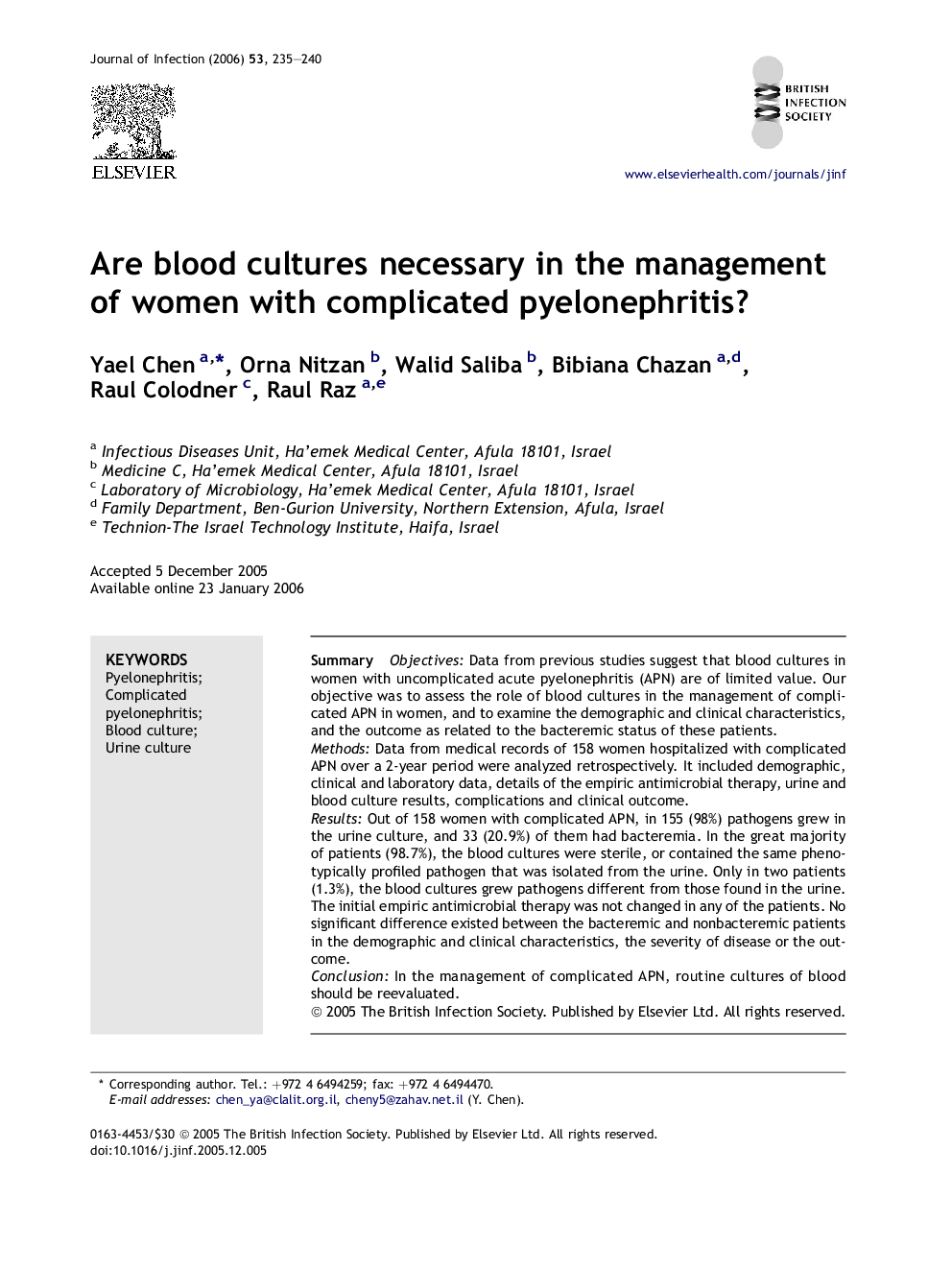| Article ID | Journal | Published Year | Pages | File Type |
|---|---|---|---|---|
| 3376598 | Journal of Infection | 2006 | 6 Pages |
SummaryObjectivesData from previous studies suggest that blood cultures in women with uncomplicated acute pyelonephritis (APN) are of limited value. Our objective was to assess the role of blood cultures in the management of complicated APN in women, and to examine the demographic and clinical characteristics, and the outcome as related to the bacteremic status of these patients.MethodsData from medical records of 158 women hospitalized with complicated APN over a 2-year period were analyzed retrospectively. It included demographic, clinical and laboratory data, details of the empiric antimicrobial therapy, urine and blood culture results, complications and clinical outcome.ResultsOut of 158 women with complicated APN, in 155 (98%) pathogens grew in the urine culture, and 33 (20.9%) of them had bacteremia. In the great majority of patients (98.7%), the blood cultures were sterile, or contained the same phenotypically profiled pathogen that was isolated from the urine. Only in two patients (1.3%), the blood cultures grew pathogens different from those found in the urine. The initial empiric antimicrobial therapy was not changed in any of the patients. No significant difference existed between the bacteremic and nonbacteremic patients in the demographic and clinical characteristics, the severity of disease or the outcome.ConclusionIn the management of complicated APN, routine cultures of blood should be reevaluated.
